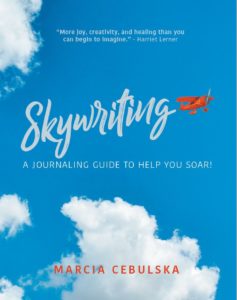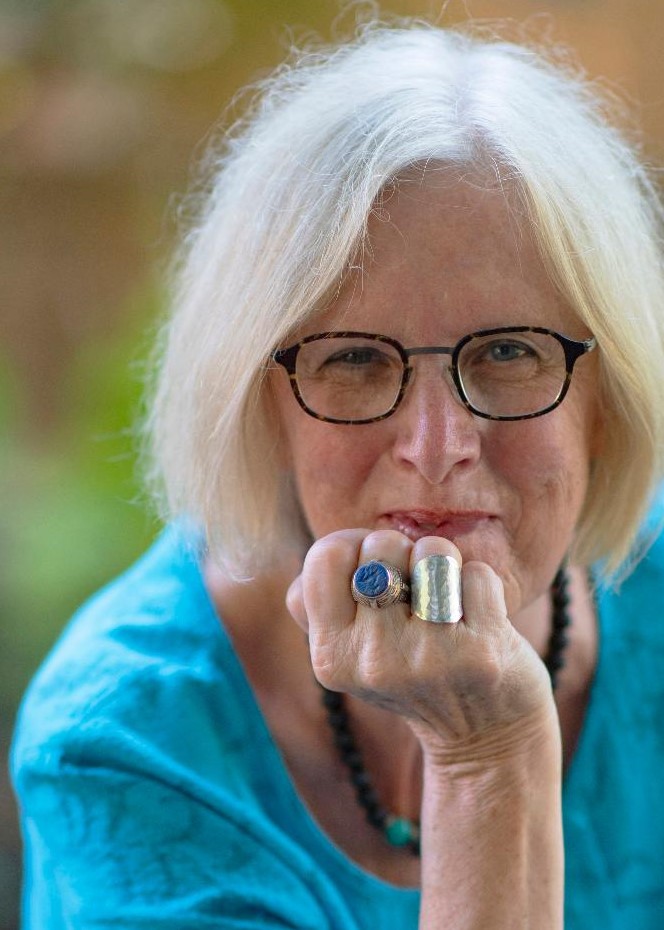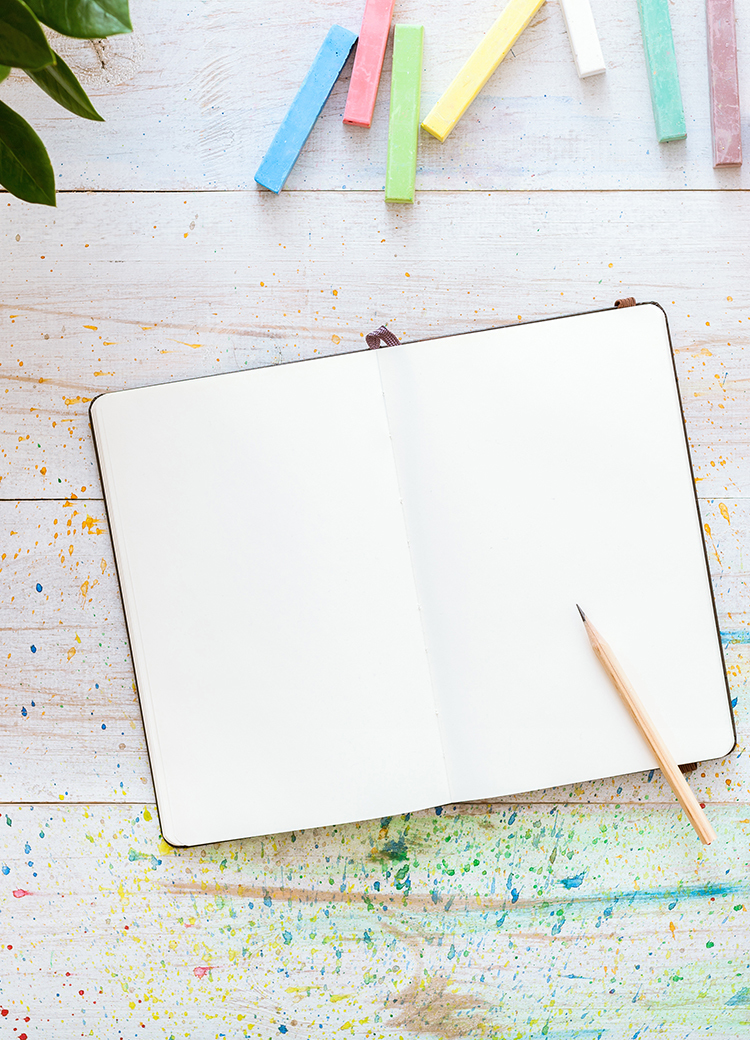Journaling to Help Your Writing Soar
 If you have ever kept a journal, you know how amazing it feels to share thoughts and feelings with a clean page. As we write, our brains kick into a different gear, processing ideas or tapping into our creativity. Many authors credit journaling for the genesis of their best creative works, or for giving them a record of the details of an experience.
If you have ever kept a journal, you know how amazing it feels to share thoughts and feelings with a clean page. As we write, our brains kick into a different gear, processing ideas or tapping into our creativity. Many authors credit journaling for the genesis of their best creative works, or for giving them a record of the details of an experience.Benefits To Other Writing
Marcia Cebulska is an award-winning playwright from Topeka. At a recent library workshop, she led writers in guided journal exercises drawn from her new book, Skywriting: A Guided Journal to Help You Soar. She notes that journaling is a powerful tool for recording details. We aren’t always ready to write about our lives in the moment of experiencing them, but reading over your own account will bring back memories in vivid detail when it’s time to write. The value of journaling goes beyond memoir writing. Cebulska said there is tremendous value in journaling for those who want to craft creative work such as fiction, poetry or plays.

Marcia Cebulska
“You can delve into your own experiences, emotions, and surroundings in order to create a character, an environment of taste, smell, and touch, true-to-life dialogue, and free-style imaginings,” Cebulska said. “If you’ve written about your frustration or your disappointment or grief in a journal, you can look to the words you’ve written as an authentic record.
"Similarly, if you’ve written down your observations at a still moment or when you’ve traveled, you have a valuable record of sensory data, of how things smelled and felt, that will be true to a time and place. You may, as I say in Skywriting, ‘make art out of the stuff of life.’ But also, a journal is valuable as a creative notebook, a depository in which to record metaphors, snatches of dialogue, or potential plot points and to develop them organically and at low risk, outside the literary work you share with the world.”
Space To Be Creative
In a journal writers can work out ideas without feeling like those ideas have to be anything more. It’s freeing to simply write, instead of trying to craft something specific. That freedom often leads to surprising creative leaps. Cebulska said the safety of the journal has led to some of her best ideas.
“Everything I’ve written has started with a scribble in my journal,” Cebulska said. “Sometimes as a visual image that I’ve sketched, sometimes as a metaphor that becomes central to a piece, sometimes as a memory. My best lines often start out in the safe, low-pressure world of the journal.”
Good for the Soul
If you aren’t already convinced to give journaling a try, there is also evidence that it helps us feel better. Studies back up what writers have been saying anecdotally for centuries — journaling is good for us, and the therapeutic value is not just in our heads.
“I’m a strong believer in writing for life, for our souls, for our mental health, for our sense of self, for release,” Cebulska said. "Journaling is writing that is all yours, it can help keep you sane."
Read on for a full interview with Marcia Cebulska, including recommended reads.
An Interview with Marcia Cebulska
Why did you decide to write a book about journaling?
Journaling gives us a safe place to vent, confess, doodle, record, experiment, complain, play, brag, create, remember, reflect, release, be brave, and be grateful. I believe in the power of journaling to help us develop self-compassion, confidence, a more mindful appreciation of the world around us, and to help us cope with troubles and to escape when we need to play. When I started writing this book, I’d been keeping a journal for 25 years, and I wanted to encourage others by offering techniques I’ve used myself and with my students to live a more aware and pleasure-filled life.
What is the value of journaling for writers?
A journal is a fantastic research resource. You can delve into your own experiences, emotions, and surroundings in order to create a character, an environment of taste, smell, and touch, true-to-life dialogue, and free-style imaginings. If you’ve written about your frustration or your disappointment or grief in a journal, you can look to the words you’ve written as an authentic record. Similarly, if you’ve written down your observations at a still moment or when you’ve traveled, you have a valuable record of sensory data, of how things smelled and felt, that will be true to a time and place. You may, as I say in Skywriting, “make art out of the stuff of life.” But also, a journal is valuable as a creative notebook, a depository in which to record metaphors, snatches of dialogue, or potential plot points and to develop them organically and at low risk, outside the literary work you share with the world.
For those who don’t see themselves as writers?
I begin Skywriting with these words:
“Our lives do not come with plot lines. We may struggle to find any rhyme or reason for what happens to us. Writing can help us tame our past, focus our present, and give us a hand in creating a path for future.” I’m a strong believer in writing for life, for our souls, for our mental health, for our sense of self, for release. Journaling is writing that is all yours, it can help keep you sane. Journaling can help us handle heartbreaks. You can take a problem that’s whirling around in your head like a gerbil on an exercise wheel, write it down where you can see it, turn it over, and explore your options. You can fantasize in a journal. You can delight or complain about your life without making anyone mad. You can dream on paper. When you write about your troubles, they become more manageable. When you write about your dreams, they become more realizable.
How has journaling helped you personally as a writer?
Everything I’ve written has started with a scribble in my journal. Sometimes as a visual image that I’ve sketched, sometimes as a metaphor that becomes central to a piece, sometimes as a memory. My best lines often start out in the safe, low-pressure world of the journal. But also, I often go to my journals to draw on earlier experiences and I’m always delighted to find detail that I could not otherwise have recalled or imagined.
When I was writing my play Visions of Right, I relied heavily on my journal to access memories of my visits to Poland, including my responses to unexpectedly seeing my last name on the roster at Auschwitz. I also depended on my journal record of my unannounced underground visit to the Westboro Baptist Church. Later that evening, I fully described my experience in my journal: the looks of the inside the church, hearing the voices sing, and the impact of hearing the Reverend Phelps preach. My recorded impressions proved invaluable when I drafted my play. Most of my main character’s description of her experience is lifted directly from my journal entry on the day of my visit.
What is the last really great book that you read?
When I turned the last page of Lily King’s Euphoria, I went directly back to the first page and read it all again, with consummate pleasure. I recommended the book to other women and they were all enthralled.
Is there a genre or author that you read that we would be surprised to find in your tote bag?
I met LS Hawker at a writers’ conference in Colorado, where she lives. Turns out, she writes thrillers, a genre I never read. But since she told me Kansas is her spiritual home, I thought I’d give her a try and bought her book End of the Road. I liked it! I think she’s super smart and I love her female characters. In turn, she read Skywriting while it was still in manuscript, made some editorial suggestions, and blurbed it. Now I’m curious to read more of her work!
What writers have had the greatest impact on your life and work?
(in no particular order)
Natalie Goldberg – My copy of Writing Down the Bones is falling apart, dog-eared and full of underlinings. Reading Goldberg freed up my writing and made it a joy. I learned from her that writing is a practice, like yoga. I’ve often used her inspirational work in teaching and I’ve quoted her in my own book, Skywriting.
Harriet Lerner – The Dance of Anger changed my life. I read it over and over again. I wanted to know the genius woman who wrote the book with such original and compelling insight and wisdom. I recommended the book to every woman I knew. Decades later, I moved to Topeka and met Harriet Lerner at my Potwin neighborhood’s Fourth of July picnic. We’ve been close friends for years now and she’ll be introducing me at the book launch for my guided journal Skywriting.
I suppose if there is a lesson it is that if one feels a strong connection to a writer, chances are that writer might end up feeling connected to you too.
6 Pretty Darn Memorable Books:
Madeline Miller’s Song of Achilles
Ann Patchett’s Truth and Beauty
Jonathon Safran Foer’s Extremely Loud & Incredibly Close
Barbara Kingsolver’s Poisonwood Bible
Louise Erdrich’s The Last Report of the Miracles at Little No Horse
Ben Lerner’s 10:04












